You’re A Funny Ass Mofo!
Comedy has always been a tool for artists to ease the pain of social issues, stereotypes and racial injustice. It has also brought front and center the positive transformation of pain into humor. Perhaps no ethnic group has displayed this with such commercial success as Blacks, but this transformation has not come without great struggle and criticism from forces both internal and external of their cultural experience. It is without dispute, Black humor has left a distinct impression not only in our society but in the greater world experience as well.
Black comedy’s history intertwined with that of a young nation experiencing racial turmoil. Humor was often a way to cope with the injustice of slavery, with many stories mixing themes of redemption, freedom and victory over oppressors. As emancipation became a reality, humor became more inspired by increasing freedom. But not until the advent of desegregation did “Black Comedy” discover the voice that would bring it boldly to an entire nation and eventually the commercial success and popularity of the late 70’s and into our present day.
Contributor: Alex Pacheco
There can never be enough said or written about the Black comedic experience in America, particularly during the 1970’s. The Museum of UnCut Funk pays homage to the true legends of Black comedy.
Mantan Moreland (1902-1973)
Born in Monore, Louisiana, Moreland began acting as an adolescent, reportedly running away to join the circus. By the late 1920s, he made his way through vaudeville, working with various shows and revues, performing on Broadway and touring Europe. Initially, Moreland appeared in low-budget “race movies” aimed at Black audiences, but as his comedic talents came to be recognized, he received roles in larger productions. He was known for his fast-patter “interrupted sentence” routines where he and a partner (most often straight man Ben Carter) would have a conversation where each would finish the other’s sentences.
His break came in 1939, when B-studio Monogram cast him as the sidekick of hotel bellboy and would-be sleuth Frankie Darro in the comedy / mystery Irish Luck. The picture’s success led Monogram to co-star them in seven similar films from 1939-41, including On the Spot, Up in the Air, and You’re Out of Luck. The plots were generally the same–an enthusiastic Darro would coax the jittery and none-too-brave Moreland into helping him solve yet another crime–but the unlikely duo had a genuine chemistry in front of the camera, and their characters’ friendship seemed (at least for the time) to be based on mutual respect.
Moreland, with his bulging eyes and cackling laugh, quickly became a favorite supporting player in Hollywood movies. He is perhaps best known for his role as chauffeur Birmingham Brown in Monogram’s Charlie Chan series. At the height of his career, Moreland received steady work from major film studios, as well as from independent producers who starred Moreland in low-budget, all-Black-cast comedies.
Perhaps the best example of Moreland rising above his straight-jacketed screen persona came in Monogram’s 1941 horror outing King of the Zombies. He once again plays a servant to the film’s nominal lead (Dick Purcell) when they and their pilot survive a plane crash on a remote Caribbean island where a sinister European doctor (Henry Victor) is using both local Voodoo and his own hypnotism to create an army of undead subordinates.
This would have been just another cheap thriller from the era, had it not been for Moreland’s performance as wise-cracking, skittish valet Jefferson Jackson. His delivery of such lines as “I thought I was a little off-color to be a ghost” and “If there’s one thing that I wouldn’t want to be twice, zombies is both of them” is on a par with Bob Hope and Lou Costello in their similarly-themed The Ghost Breakers and Hold That Ghost. The highlight is the scene where Victor hypnotizes Moreland into believing he’s been “zombified” (“Move over, boys,” a blank-eyed Mantan says to his new compatriots, ” I’m one of the gang now.”).
Moreland was offered fewer roles in the 1950s, as filmmakers began to reassess roles given to Black actors. He was briefly considered as a possible addition to the Three Stooges when Shemp Howard died in 1955. This prospect was disclosed by Moe Howard in a 1971 interview with film historian Michael H. Price, cited in Price’s 2007 biography of Moreland, Mantan the Funnyman. Moreland returned to the stage and appeared in two all-Black variety films in 1955, with Nipsey Russell standing in for Ben Carter as his straight man. The 1960s gave Moreland’s career a small boost, with minor roles in such films as Melvin van Peebles’ satire Watermelon Man. He also got to appear on TV in such groundbreaking programs as Julia and The Bill Cosby Show.
The comic died of a cerebral hemorrhage in 1973.
Filmography
- That’s the Spirit (1933)
- The Green Pastures (1936)
- Harlem on the Prairie (1937)
- Shall We Dance (1937)
- The Green Pastures (1937)
- Two-Gun Man from Harlem (1938)
- Gang Smashers (1938)
- Next Time I Marry (1938)
- Frontier Scout (1938)
- Spirit of Youth (1938)
- One Dark Night (1939)
- Irish Luck (1939)
- Riders of the Frontier (1939)
- Tell No Tales (1939)
- There’s That Woman Again (1939)
- One Dark Night (1939)
- Chasing Trouble (1940)
- Up in the Air (1940)
- Four Shall Die (1940)
- Drums of the Desert (1940)
- While Thousands Cheer (1940)
- Pier 13 (1940)
- Laughing at Danger (1940)
- Maryland (1940)
- On the Spot (1940)
- Girl in 313 (1940)
- Viva Cisco Kid (1940)
- Star Dust (1940)
- Millionaire Playboy (1940)
- Chasing Trouble (1940)
- The Man Who Wouldn’t Talk (1940)
- City of Chance (1940)
- You’re Out of Luck (1941)
- Marry the Boss’s Daughter (1941)
- Birth of the Blues (1941)
- It Started with Eve (1941)
- Let’s Go Collegiate (1941)
- World Premiere (1941)
- Dressed to Kill (1941)
- Accent on Love (1941)
- The Gang’s All Here (1941)
- Bachelor Daddy (1941)
- King of the Zombies (1941)
- Sign of the Wolf (1941)
- Ellery Queen’s Penthouse Mystery (1941)
- Footlight Fever (1941)
- Sleepers West (1941)
- You’re Out of Luck (1941)
- Cracked Nuts (1941)
- Hello, Sucker (1941)
- Mr. Washington Goes to Town (1941)
- Up Jumped the Devil (1941)
- King of the Zombies (1941)
- Let’s Go Collegiate (1941)
- Lucky Ghost (1942)
- The Palm Beach Story (1942)
- Girl Trouble (1942)
- Phantom Killer (1942)
- A-Haunting We Will Go (1942)
- Footlight Serenade (1942)
- Mexican Spitfire Sees a Ghost (1942)
- The Strange Case of Doctor Rx (1942)
- Law of the Jungle (1942)
- Treat ‘Em Rough (1942)
- Four Jacks and a Jill (1942)
- Freckles Comes Home (1942)
- Andy Hardy’s Double Life (1942)
- Professor Creeps (1942)
- Tarzan’s New York Adventure (1942)
- She’s for Me (1943)
- Swing Fever (1943)
- My Kingdom for a Cook (1943)
- You’re a Lucky Fellow, Mr. Smith (1943)
- Hi’ya, Sailor (1943)
- Revenge of the Zombies (1943)
- We’ve Never Been Licked (1943)
- Melody Parade (1943)
- Eyes in the Night (1943)
- Sarong Girl (1943)
- Hit the Ice (1943)
- Cabin in the Sky (1943)
- It Comes Up Love (1943)
- He Hired the Boss (1943)
- Cosmo Jones, Crime Smasher (1943)
- Slightly Dangerous (1943)
- Charlie Chan in the Secret Service (1944)
- Bowery to Broadway (1944)
- The Mystery of the Riverboat (1944)
- Black Magic (1944)
- South of Dixie (1944)
- This Is the Life (1944)
- Charlie Chan in The Chinese Cat (1944)
- Pin Up Girl (1944)
- Moon Over Las Vegas (1944)
- Chip Off the Old Block (1944)
- See Here, Private Hargrove (1944)
- The Scarlet Clue (1945)
- She Wouldn’t Say Yes (1945)
- Captain Tugboat Annie (1945)
- The Shanghai Cobra (1945)
- The Naughty Nineties (1945)
- The Scarlet Clue (1945)
- The Jade Mask (1945)
- The Spider (1945)
- Riverboat Rhythm (1946)
- Mantan Messes Up (1946)
- Mantan Runs for Mayor (1946)
- Tall, Tan, and Terrific (1946)
- The Trap (1946)
- Shadows Over Chinatown (1946)
- Dark Alibi (1946)
- Ebony Parade (1947)
- The Chinese Ring (1947)
- Ebony Parade (1947)
- The Feathered Serpent (1948)
- The Shanghai Chest (1948)
- Best Man Wins (1948)
- Docks of New Orleans (1948)
- What a Guy (1948)
- She’s Too Mean for Me (1948)
- The Dreamer (1948)
- Come On, Cowboy!(1948)
- The Return of Mandy’s Husband (1948)
- The Golden Eye (1948)
- The Sky Dragon (1949)
- The Patsy (1964)
- Alvarez Kelly (1966)
- Enter Laughing (1966)
- Spider Baby (1968)
- Watermelon Man (1970)
- The Biscuit Eater (1972)
- The Young Nurses (1973)
TV Appearances
- Hallmark Hall Of Fame (1957)
- Julia (1969)
- The Comic (1969)
- The Bill Cosby Show (1970)
- Adam-12 (1970)
- Marriage: Year One (1971)
Stage Appearances
- Blackbirds (1928)
- Lew Leslie’s Blackbirds of 1930 (1930)
- Singin’ the Blues (1931)
- Blackberries of 1932 (1932)
- Yeah-Man (1932)
- Shuffle Along of 1933 (1933)
Discography
- That Ain’t My Finger
- Elsie’s Sportin’ House
- Tribute to the Man
Moms Mabley (1894 – 1975)
Loretta Mary Aiken was born in North Carolina, one of 12 children. She adopted the stage name Jackie Mabley from a boyfriend. Her explanation given during a magazine interview was that he had taken so much from her, the least she could do was to take his name. She changed her name after her brother was embarrassed to have a sister in show business. The moniker Moms stemmed from the motherly care she provided to several other comedians on the circuit.
She influenced comedians past and present such as Rudy Ray Moore (aka “Dolemite”), Richard Pryor, Lady Reed (aka “Queen Bee”), Whoopi Goldberg and Mo’Nique (“The Parkers”). “Moms” gained national recognition as a comedian in the early 1960’s. Onstage, her trademark clothing: oversized clodhoppers, gaudy house dresses and floppy hats along with a toothless smile. Her comedic style was right on target with her frumpy, sassy, granny-like stage persona.
As with most comedians, they get their material from social satire, real life, personal pains & struggles. At the age of 11, an older Black man raped young Loretta then horrifically two years later she was again raped…this time by the town’s white sheriff. Both incidents resulted in pregnancy and both children were put up for adoption. Loretta’s father, a volunteer fireman was killed when his fire truck overturned and exploded. More tragedy would follow with the death of her mother who was struck by a truck coming home from church on Christmas. Moms Mabley is a perfect example of using humor to overcome misfortune. Much of her material reflected the trials of her teenage years. At a young age her step father forced her to marry a much older man who she hated, which prompted her to run away with a traveling minstrel show. She later used this experience to create her signature jokes putting down older men.
Moms was one of the first, perhaps the first, to advocate for civil rights in her comedy routines. As one of the first female comics to star at the Apollo Theater in Harlem, Mabley was a regular performer there from 1939 until the 1960’s. She was also a performer at Harlem’s Cotton Club, where she appeared with Count Basie, Duke Ellington, Louis Armstrong and Cab Calloway. She also performed in early Black theater and collaborated with Harlem Renaissance writer Zora Neale Hurston in the 1931 Broadway play Fast and Furious: A Colored Revue in 37 Scenes.
She was one of the top women stand-up comediennes of her time, and at her peak she earned $10,000 a week at Harlem’s Apollo Theater. She appeared in clubs, movies and on television, and also recorded more than 20 comedy routines. Due to the success of her comedy albums, Mabley remains the highest charting female comic in history.
Moms Mabley died in White Plains, New York of natural causes at the age of 78 in 1975, a year after starring in the feature film Amazing Grace. In 1987, Clarice Taylor (known as Bill Cosby’s mom on the Cosby Show) starred in an off-broadway play entitled “Moms” that she championed. Whoopi Goldberg also did a solo show on Moms, and is currently producing a documentary on the life of the comedian.
Moms Mabley Quotes:
"Life is like a game of poker: If you don't put any in the pot, there won't be any to take out."
"Love is like playing checkers. You have to know which man to move."
Filmography
- The Emperor Jones (1933)
- Boarding House Blues (1948)
- Amazing Grace (1974)
- It’s Your Thing (1970)
TV Appearances
- Killer Diller (1948)
- ABC Stage 67 (1967)
- The Smothers Brothers Comedy Hour (1967-1968)
- Playboy After Dark (1969)
- Della (1969)
- Music Scene (1969)
- The Merv Griffin Show (1967-1970)
- Flip (1970)
- The Bill Cosby Show (1970)
- The Pearl Bailey Show (1971)
- The Mike Douglas Show (1971)
- The David Frost Show (1969-1971)
- The Tonight Show Starring Johnny Carson (1972)
Stage Appearances
- Bowman’s Cotton Blossoms (1919)
- Look Who’s Here (1927)
- Miss Bandana (1927)
- Fast and Furious (musical) (1931)
- Blackberries of 1932 (1932)
- The Joy Boat (1930s)
- Sidewalks of Harlem (1930s)
- Red Pastures (1930s)
- Swingin’ the Dream (1939)
Discography
- On Stage (Funniest Woman in the World) (1961)
- Moms Mabley at the “UN” (1961)
- Moms Mabley at The Playboy Club (1961)
- Moms Mabley Breaks It Up (1962)
- Moms Mabley at Geneva Conference (1962)
- I Got Somethin’ to Tell You! (1963)
- Young Men, Sí – Old Men, No (1963)
- Moms the Word (1964)
- Out on a Limb (1964)
- The Funny Sides of Moms Mabley (1964)
- Moms Wows (1964)
- Best of Moms and Pigmeat, Vol. 1 (1964)
- Men in My Life (1965)
- Now Hear This (1965)
- Moms Mabley at the White House (1966)
- Best of Moms Mabley (1968)
- The Youngest Teenager (1969)
- Her Young Thing (1969)
- Live at Sing Sing (1970)
- I Like ’em Young (1972)
- Live at the Apollo (1994)
- The Funny Sides of Moms Mabley (1994)
- Live at the Ritz (1994)
- Comedy Ain’t Pretty (2004)
- Moms Mabley And Pigmeat Markham – The Best Of Moms And Pigmeat Volume One (Unknown)
Godfrey MacArthur Cambridge (1933-1976)
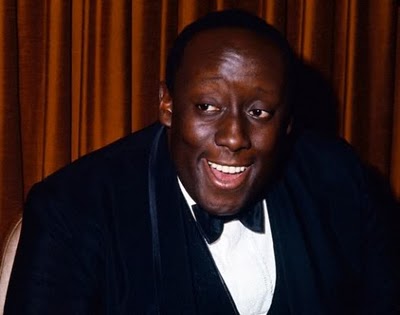 Godfrey Cambridge was born in New York in 1933. He had originally received a scholarship to study medicine at Hoftra but opted for an acting career instead. He earned national fame for his comedy after he appeared on The Jack Paar Show in 1964. He was especially popular in the late 1960s and early 1970s as a regular guest on The Merv Griffin Show and other television shows. His comedy routines were imbued with biting sarcasm and trenchant topical humor that was common in comedic circles at the time.
Godfrey Cambridge was born in New York in 1933. He had originally received a scholarship to study medicine at Hoftra but opted for an acting career instead. He earned national fame for his comedy after he appeared on The Jack Paar Show in 1964. He was especially popular in the late 1960s and early 1970s as a regular guest on The Merv Griffin Show and other television shows. His comedy routines were imbued with biting sarcasm and trenchant topical humor that was common in comedic circles at the time.
Alongside Bill Cosby, Dick Gregory, and Nipsey Russell, he was acclaimed by Time magazine in 1965 as “one of the country’s four most celebrated Negro comedians”. From the Time article…When Godfrey Cambridge comes on stage, he sprints. He has a reason for charging into his act. “I hope you noticed how I rushed up here,” he tells his audiences. “We do have to do that to change our image. No more shuffle after the revolution. We gotta be agile.” The implication is that after the revolution is really now. The Negro cause has made such headway that Negro comedians are telling a new kind of joke. People used to think of Negroes as going around with fried chicken in a paper bag, Cambridge says. But things have changed. “Now,” he says, “we carry an attache case—with fried chicken in it. We ain’t going to give up everything just to get along with you people.”
Cambridge’s memorable film roles include Watermelon Man, where he plays the lead character, a white bigot who one day wakes up and discovers his skin color has turned to Black, and The President’s Analyst, where he plays a depressed government agent. He also had a starring role in the 1970 Ossie Davis adaptation of the Chester Himes novel Cotton Comes to Harlem and the sequel Comeback Charleston Blue. He perhaps reached his largest audience in a series of comical television commercials for Jockey brand underwear.
Cambridge is also remembered for his starring role in Beware! The Blob, a sequel to the The Blob, as well as appearances on several network television programs, including Car 54 Where are Are You? (“The Curse of the Snitkins”), The Dick Van Dyke Show (“The Man From My Uncle”), and I Spy (“Court of the Lion”). He also had a small speaking part as a member of Sgt. Bilko’s platoon in the Phil Silvers Show, 1957 episode ‘Boys Town’.
Cambridge had a number of starring theatrical roles, both on and off Broadway, including his Broadway debut in Nature’s Way (1951). He later appeared in The Blacks, in a performance that earned him an Obie award in 1961. In 1962, he was nominated for a Tony Award for Best Supporting or Featured Actor (Dramatic) for “Purlie Victorious,” a role he recreated in the film version titled Gone Are the Days! (1963). He also did a stock version of A Funny Thing Happen on the Way to the Forum four years later.
Cambridge died of heart attack on set of TV movie Victory at Entebbe in 1976, where he was set to play Ugandan dictator Idi Amin. Amin claimed Cambridge’s death was “punishment from God.”
TV Appearances
- The Phil Silvers Show (1957)
- The Defenders (1961)
- Naked City (1960-1962)
- The United States Steel Hour (1962)
- Car 54, Where Are You? (1963)
- East Side / West Side (1963)
- I Spy (1966)
- The Dick Van Dyke Show (1966)
- Daktari (1966)
- ABC Stage 67 (1967)
- The Monkees (1967)
- The Joe Namath Show (1969)
- The Red Skelton Hour (1966-1970)
- Love American Style (1970)
- Rod Sterling’s Night Gallery (1971)
- The Ice Palace (1971)
- O’Hara U.S. Treasury (1972)
- The Furst Family Of Washington (1973)
- Police Story (1975)
- Ceremonies In The Dark Old Men (1975)
- Scott Joplin (1977)
Filmography
- The Last Angry Man (1959)
- Splendor In The Grass (1961)
- Gone Are The Days! (1963)
- The Troublemaker (1964)
- The Busy Body (1967)
- The President’s Analyst (1967)
- The Biggest Bundle Of Them All (1968)
- Bye Bye Braverman(1968)
- Watermelon Man (1970)
- Cotton Come To Harlem (1970)
- The Biscuit Eater (1972)
- Beware The Blob (1972)
- Come Back, Charleston Blue (1972)
- Whiffs (1975)
- Friday Foster (1975)
Stage Appearances
- Nature’s Way (1957)
- Purlie Victorious (1961- 1962)
- How To Be A Jewish Mother (1967 – 1968)
Discography
- Ready Or Not…Here’s Godfrey Cambridge (1964)
- Them Cotton Pickin’ Days Is Over (1965)
- Toys With The World (1966)
- Recorded Live At The Aladin, Las Vegas – The Godfrey Cambridge Show (1968)
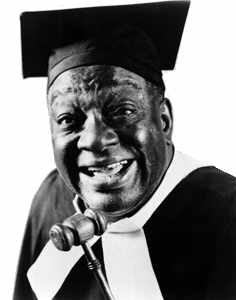 Dewey “Pigmeat” Markham (1904–1981)
Dewey “Pigmeat” Markham (1904–1981)
Markham was born in Durham, North Carolina. His family was the most prominent on their street, which came to be called (and later officially named) Markham Street. He was a comedian, singer, dancer and actor. His nickname came from a stage routine, in which he declared himself to be “Sweet Poppa Pigmeat.” He was sometimes credited in films as David “Pigmeat” Markham.
Markham began his show biz career as a tap dancer before breaking into the “T.O.B.A.” circuit of Black vaudeville. For a time he was a member of Bessie Smith’s Traveling Revue in the 1920s. He was in the “Sugar Cane Review” in 1925 and through the late 20’s and the 30’s played in many more variety shows perfecting his tried-and-true sketches. In 1935, he journeyed to The Apollo Theater in New York, sometimes appearing on the bill every week for an entire year. He wore blackface makeup and huge painted white lips, although some complained this vaudeville tradition was degrading. He probably played at the Apollo more frequently then any other performer.
His nickname came from a character in an old vaudeville routine: “Sweet Papa Pigmeat, with the River Jordan at my hips, and all the women is just run up to be baptized!” Later, he claimed he originated the Truckin’ dance which became nationally popular at the start of the 1930s. Pigmeat played “Alamo the Cook” on the brief run of the Andrews Sisters’ radio show, and in the 1940’s made films that circulated mostly to Black movie houses. Starting in the 1950s Pigmeat Markham began appearing on television, making multiple appearances on the Ed Sullivan Show.
In 1964, he recorded “Open the Door, Richard”. In 1968, he also recorded his most famous “Here comes the Judge”, which was his signature routine. Markham would sit at an elevated judge’s bench, often in a black graduation cap-and-gown and deliver his “judgments”, as well as express frustration with the accused, by leaning over the bench and smacking the accused with an inflated bladder-balloon. “The judge is high as a Georgia pine! Everybody’s goin’ to jail today! And to show you I don’t mean nobody no good this morning, I’m givin’ myself six months! And if I’m gonna do six months, Mr. District Attorney, you can imagine what you’re gonna do!” Markham’s national fame took hold after Sammy Davis Jr. popularized the “Here Come De Judge” catch-phrase on “Rowan and Martin’s Laugh-In.” Another Markham line also became a catch phrase on Laugh-In – “Look that up in your Funk and Wagnalls”. The success of Davis’s appearance led to Markham’s opportunity to perform his signature Judge character during his one season on Rowan & Martin’s Laugh-In. Davis brought Pigmeat to Vegas with him for a $5,000 a week taste of big-time success. Archie Campbell later adapted Markham’s routine, performing as “Justus O’Peace,” on the country version of Laugh-In, Hee Haw, which borrowed heavily from the minstrel show tradition. Thanks to his Heyeah come da judge routine, which originally was accompanied by music with a funky beat, Pigmeat Markham is regarded as a forerunner of rappers.
New generations enjoyed Markham’s classic routines, including his variation on “Who’s on First,” with Pigmeat explaining the game to an old deaf man: “Ball one!” “Huh?” “The man said I got one ball!” “Ohh, the man said you got one ball. Too bad.” “Ball two!” What’s that?” “The man said I got two balls!” “Oh…ain’t nothin’ news about that…” “Whee! I knocked up a fly!” “Say what?” “I knocked up a fly!” “Oh, you knocked up a fly. Uh-uh. It can’t be done!”
Markham died of a stroke at Montefiore Medical Center in the Bronx at the age of 77. He is buried in Woodlawn Cemetery in the Bronx.
Pigmeat Markham Quote:
"Here come da judge?"
Filmography
- One Big Mistake (1940)
- Mr. Smith Goes Ghost (1940)
- Am I Guilty (1940)
- Swanee Showboat (1940)
- That’s My Baby! (1944)
- Pigmeat Throws The Bull (1945)
- House-Rent Party (1946)
- Fight That Ghost (1946)
- Junction 88 (1947)
- Pigmeats Laugh Hepcats (1947)
- Hell Cats (1947)
- Shut My Big Mouth (1947)
- Wrong Mr. Wright (1947)
- Burlesque In Harlem (1954)
TV Appearances
- The Ed Sullivan Show (1953-1963)
- Show Time At The Apollo (1955)
- ABC Stage 67 (1967)
- Rowan & Martin’s Laugh-In (1968)
- The David Frost Show (1969)
Discography
- At The Party (1961)
- The Trial (1961)
- Anything Goes With Pigmeat (1962)
- The World’s Greatest Clown (1963)
- Open The Door Richard (1964)
- Mr. Funny Man (1965)
- This’ll Kill Ya (1965)
- If You Can’t Be Good, Be Careful (1966)
- Mr. Vaudeville (1967)
- Save Your Soul, Baby (1967)
- Tune Me In (1968)
- Here Comes The Judge (1968)
- Backstage (1968)
- Hustlers (1969)
- Pigmeat Markham’s Bag (1969)
- The Crap-Shootin’ Rev (1972)
- Live At The Apollo
- Will The Real Pigmeat Markham Please Sit Down
- Moms Mabley And Pigmeat Markham – The Best Of Moms And Pigmeat Volume One
Lincoln Theodore Monroe Andrew Perry claimed a birth date of May 30, 1902 but may have been born as early as 1892. Perry was born in Key West, Florida to West Indian immigrant parents. Perry ran away at age twelve to join a carnival. He earned his living for a few years as a singer and tap dancer. By the age of twenty, Perry had become a Vaudeville artist and the manager of a traveling carnival show. He performed a vaudeville act with a partner, with the two of them being known as “Step” and “Fetchit.” When Perry became a solo act he combined the two names, which later became his professional name.
He made his screen debut in The Mysterious Stranger (1927) and parlayed his Fetchit persona of being “The Laziest Man in the World” into a successful film career, eventually becoming a millionaire, the first Black actor in history to do so. He was also the first Black actor to receive a screen credit. At a time when contracts for Black actors were unheard of, Fetchit was signed, then dropped, then spectacularly re-signed by Fox Pictures. From 1929 to 1935, he appeared in some twenty-six films. Often working in as many as four movies at a time, Fetchit was the first Black actor to received featured billing, and special scenes were often written into pictures for him.
By the mid-30s, when Fetchit was at the height of stardom, Black leaders began to pressure filmmakers to expel the negative images that they believed were a hindrance to racial equality. Fetchit, who had made a name for himself mocking his own race, was considered “part of the problem” rather than a trailblazer. The NAACP made considerable progress by the end of the decade, forcing Fetchit into constant battles with Fox Studios for respectable pay and billing equal to his White contemporaries. It was the beginning of the end. During the following years, Stepin Fetchit’s star began to diminish. His mainstream career was dormant and he had become a regular in “race films” like 1945’s Big Timers. By 1947, after years of mishandling his fortune, Fetchit was forced to declare bankruptcy. His famous characterization of Blacks was no longer a celebrated image, but rather, a likeness no longer welcome in a society working toward non-segregation. Consequently, Stepin Fetchit faded into anonymity.
Perry’s typical film persona and stage name have long been controversial, and seen as synonymous with negative stereotypes of Black Americans. However, a newer interpretation of his film persona contends Perry was ultimately subversive of the status quo. According to Mel Watkins, film historian and author of the biography Stepin Fetchit: The Life and Times of Lincoln Perry, Perry created the character to make himself stand out from other actors. Walker points out that the Fetchit character is actually a subversive trickster — he never got around to fetching anything. “The lazy man character that Perry played was based on something that had come from slavery,” Watkins says. “It was called ‘putting on old massa’ — break the tools, break the hoe, do anything to postpone the work that was to be done.” Finally, the white characters would become exasperated and do the work themselves. “And blacks understood it perfectly, and laughed heartily at it.” In later years he was praised for his part in opening doors for black actors, notably receiving the Special Image Award by the NAACP. He was elected to the Black Filmmakers Hall of Fame in 1978.
Mr. Perry appeared in over 50 films during his career. He died November 19, 1985 from pneumonia at age 83.
Stepin Fetchit Quote:
"I went in and kicked open doors in Hollywood … so now Sidney Poitier can come in the front door.”
Filmography
- The Mysterious Stranger (1925)
- In Old Kentucky (1927)
- The Devil’s Skipper (1928)
- Nameless Men (1928)
- The Tragedy of Youth (1928)
- Kid’s Clever (1929)
- The Ghost Talks (1929)
- Hearts in Dixie (1929)
- Thru Different Eyes (1929)
- Show Boat (1929)
- Innocents of Paris (1929)
- Fox Movietone Follies of 1929 (1929)
- Salute (1929)
- Big Time (1929)
- Cameo Kirby (1930)
- The Big Fight (1930)
- Swing High (1930)
- A Tough Winter (1930)
- La Fuerza del Querer (1930)
- The Prodigal (1931)
- Wild Horse (1931)
- The Galloping Ghost (1931)
- Neck and Neck (1931)
- Carolina (1934)
- David Harum (1934)
- Stand Up and Cheer! (1934)
- The World Moves On (1934)
- Judge Priest (1934)
- Marie Galante (1934)
- Bachelor of Arts (1934)
- Helldorado (1935)
- The County Chairman (1935)
- One More Spring (1935)
- Charlie Chan in Egypt (1935)
- Steamboat Round the Bend (1935)
- The Virginia Judge (1935)
- Dimples (1936)
- 36 Hours to Kill (1936)
- On the Avenue (1937)
- Love Is News (1937)
- Fifty Roads to Town (1937)
- His Exciting Night (1938)
- Zenobia (1939)
- Open the Door Richard (1945)
- Big Timers (1945)
- Miracle in Harlem (1948)
- Mouse Cleaning (1948)
- I Ain’t Gonna Open That Door (1949)
- Harlem Follies of 1949 (1950)
- Bend of the River (1952)
- The Sun Shines Bright (1953)
- Cutter (1972) (TV movie)
- Muhammad Ali, the Greatest (1974)
- Amazing Grace (1974)
- Brother, Can You Spare a Dime? (1975)
- Won Ton Ton, the Dog Who Saved Hollywood (1976)
For More That’s Some Funny Shit check out Parts 2-5:

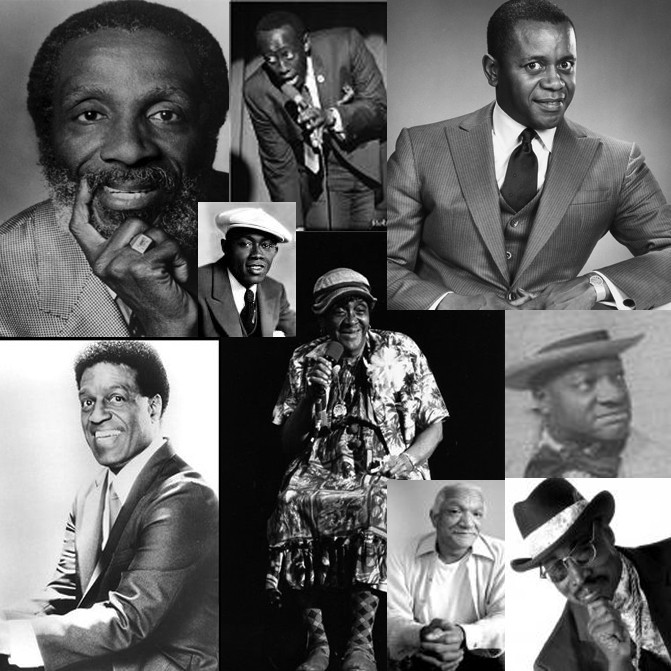
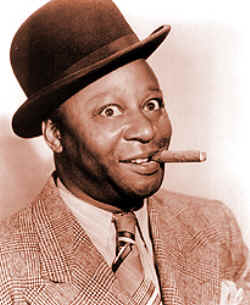
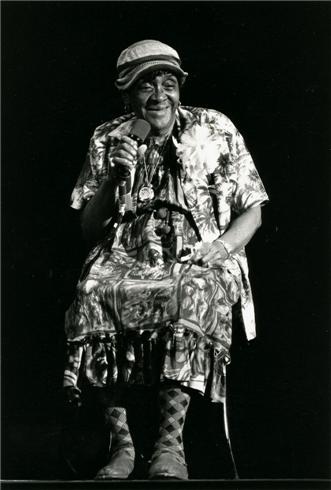
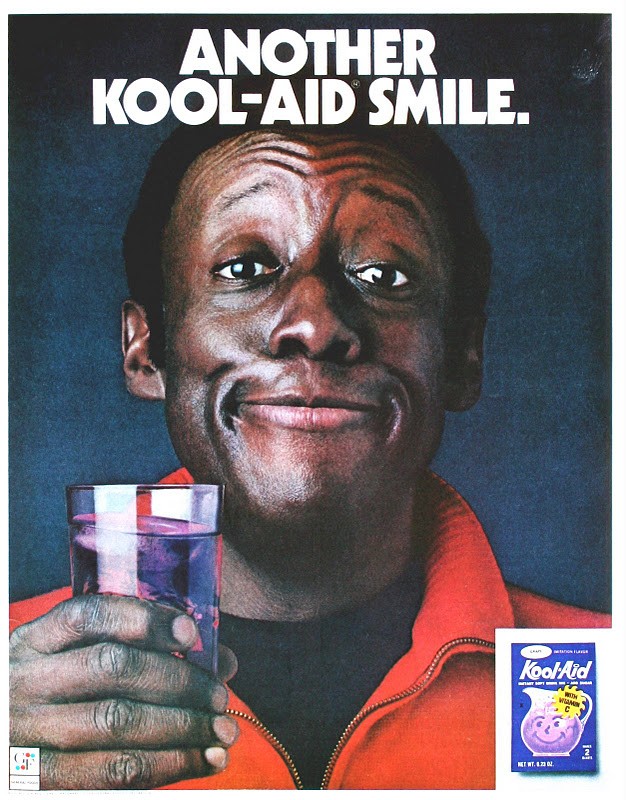
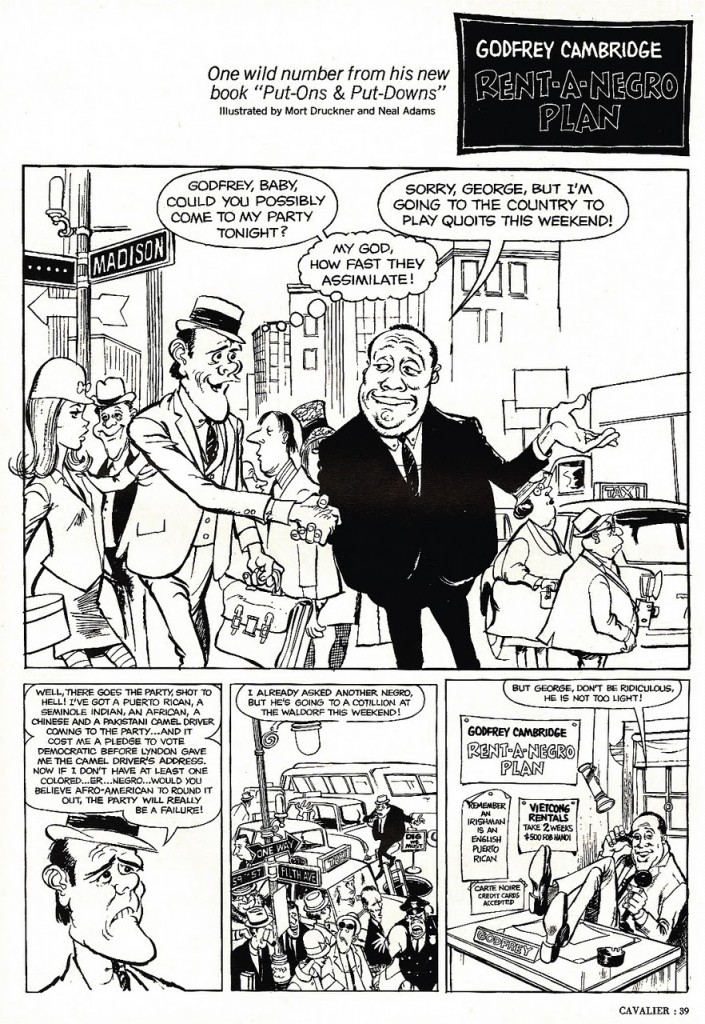
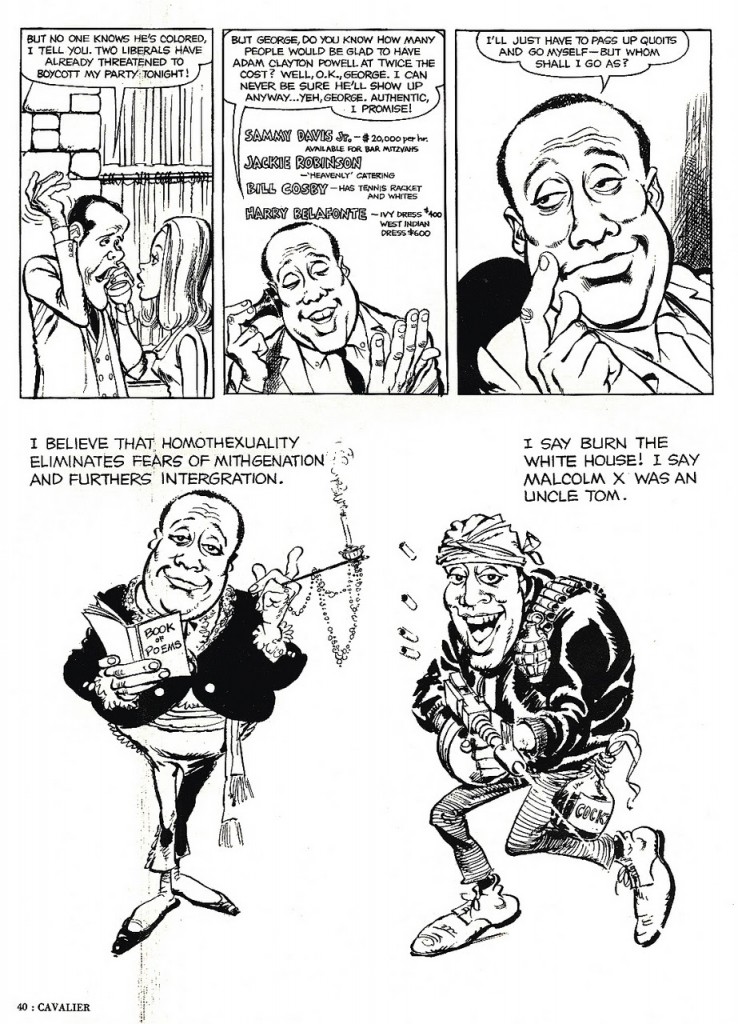
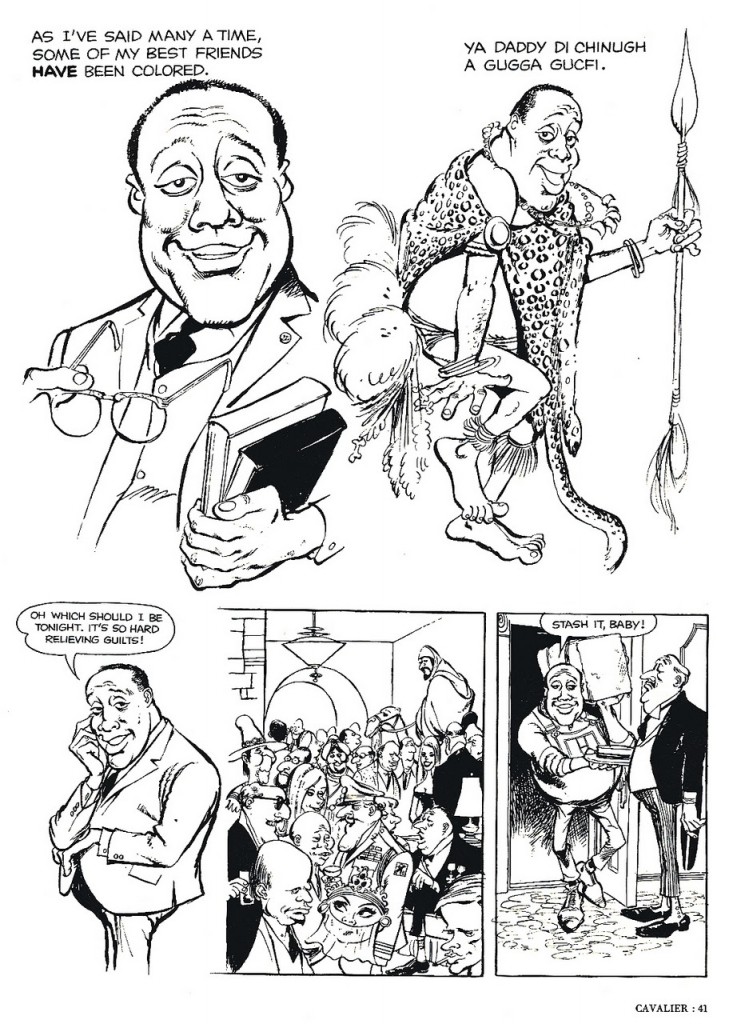
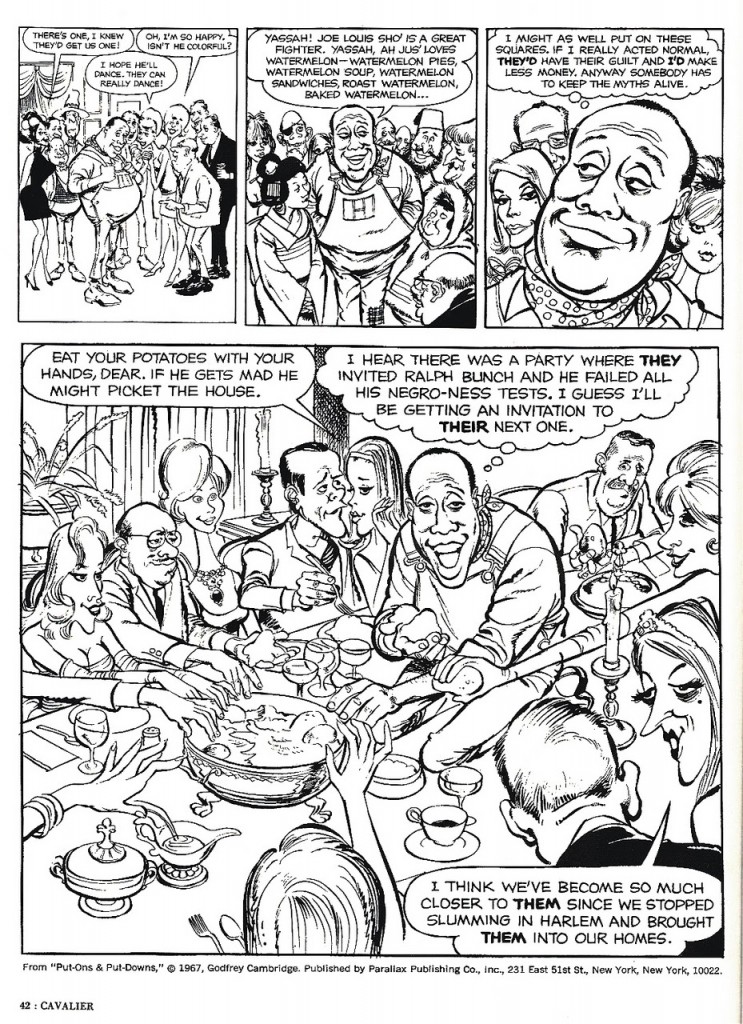
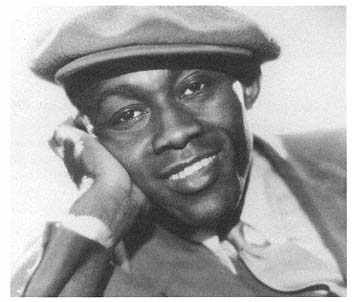
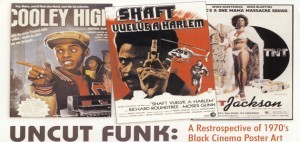

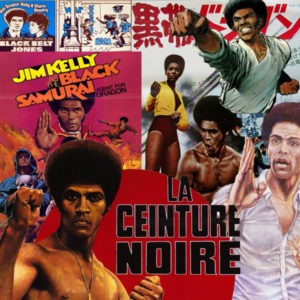

1 Comment
This was and is a wonderful resource
Thank you